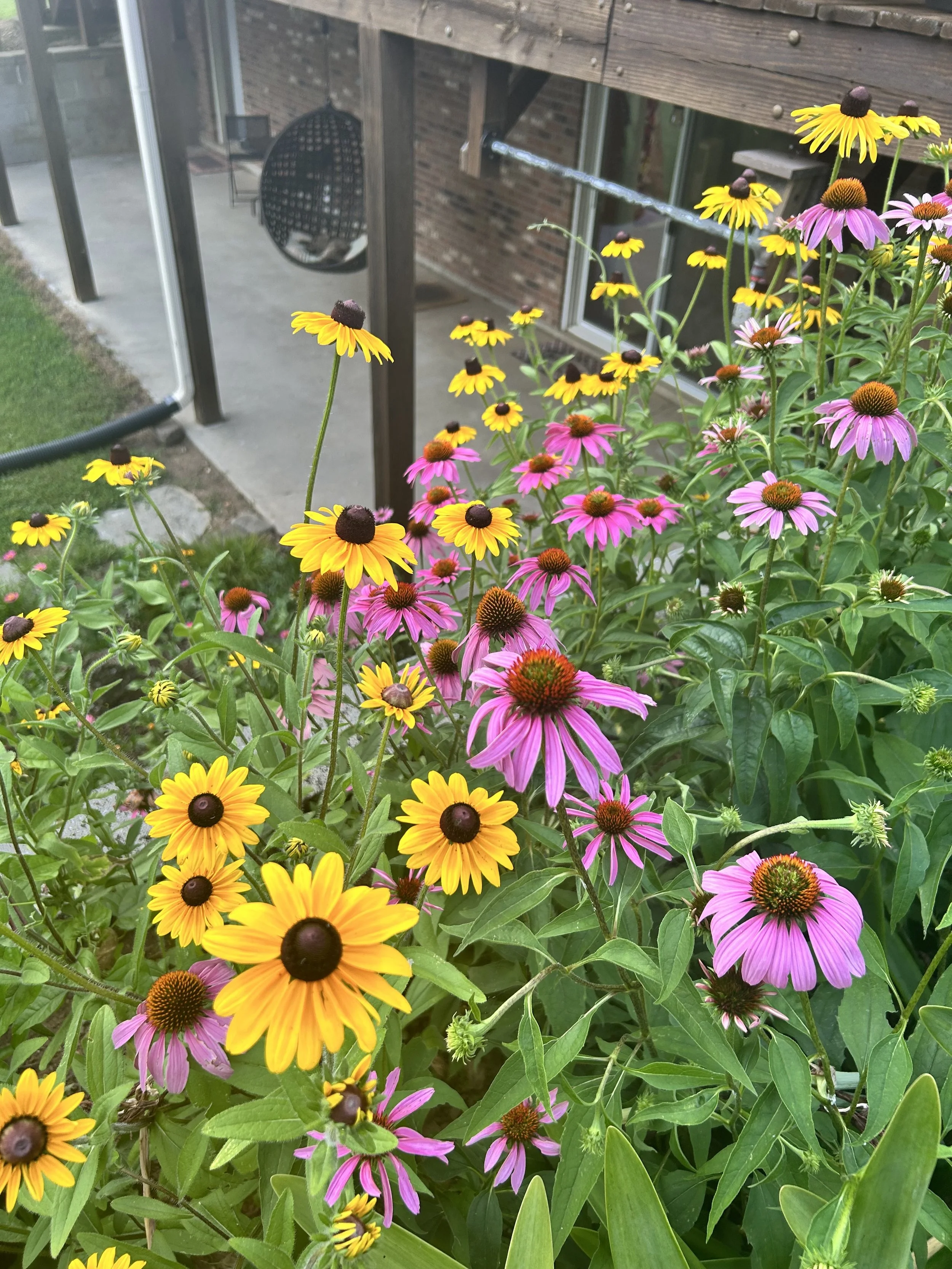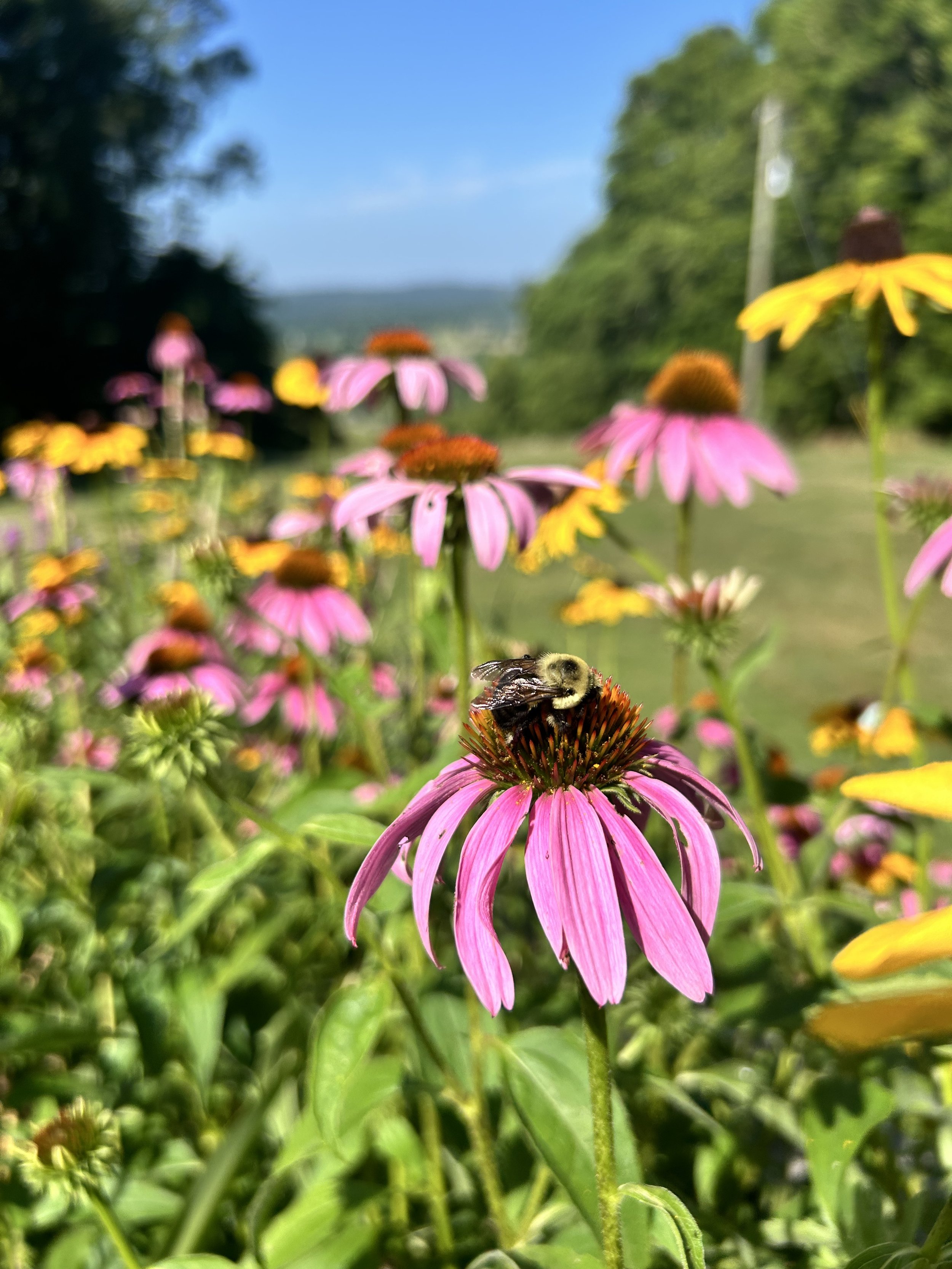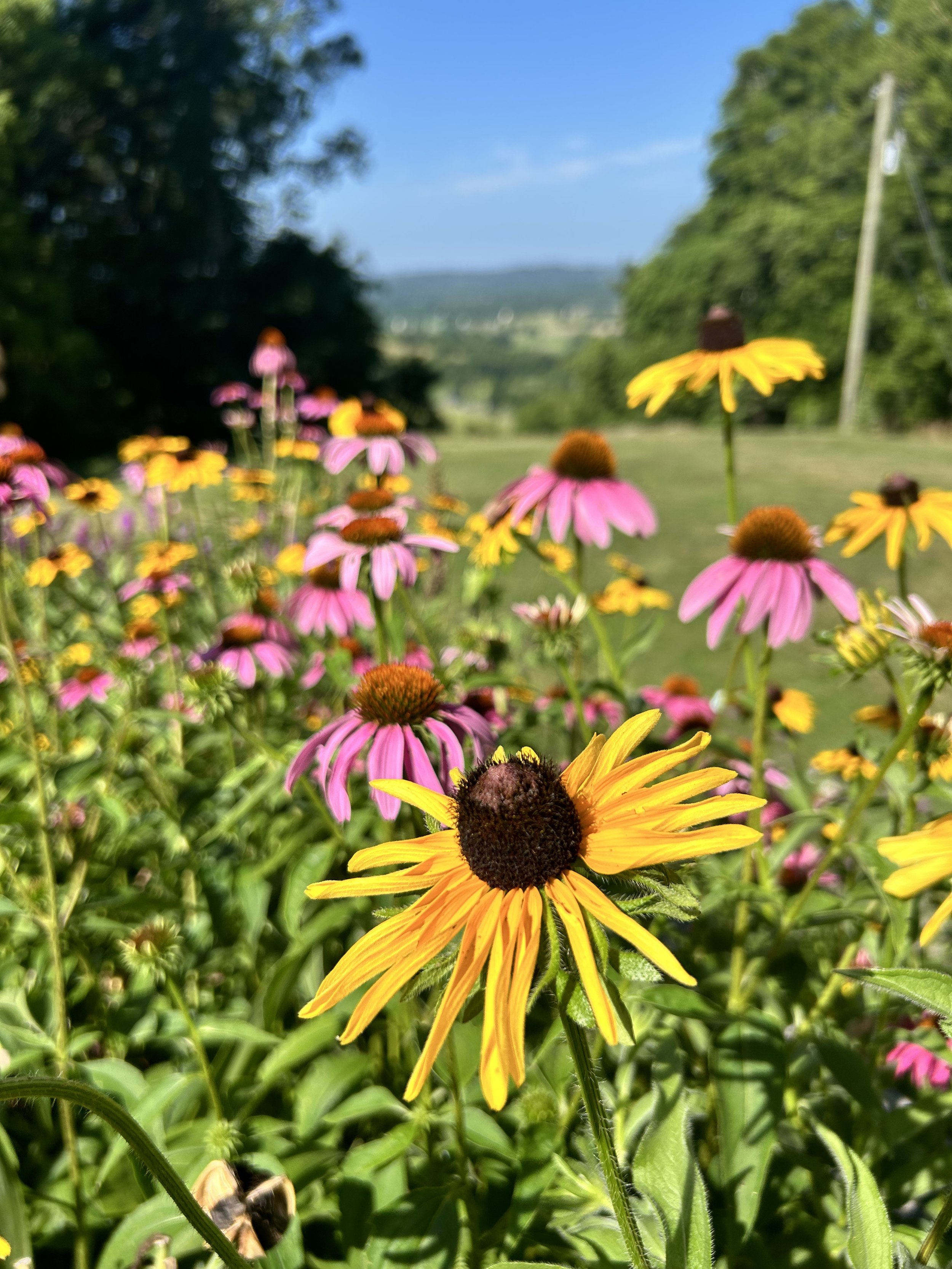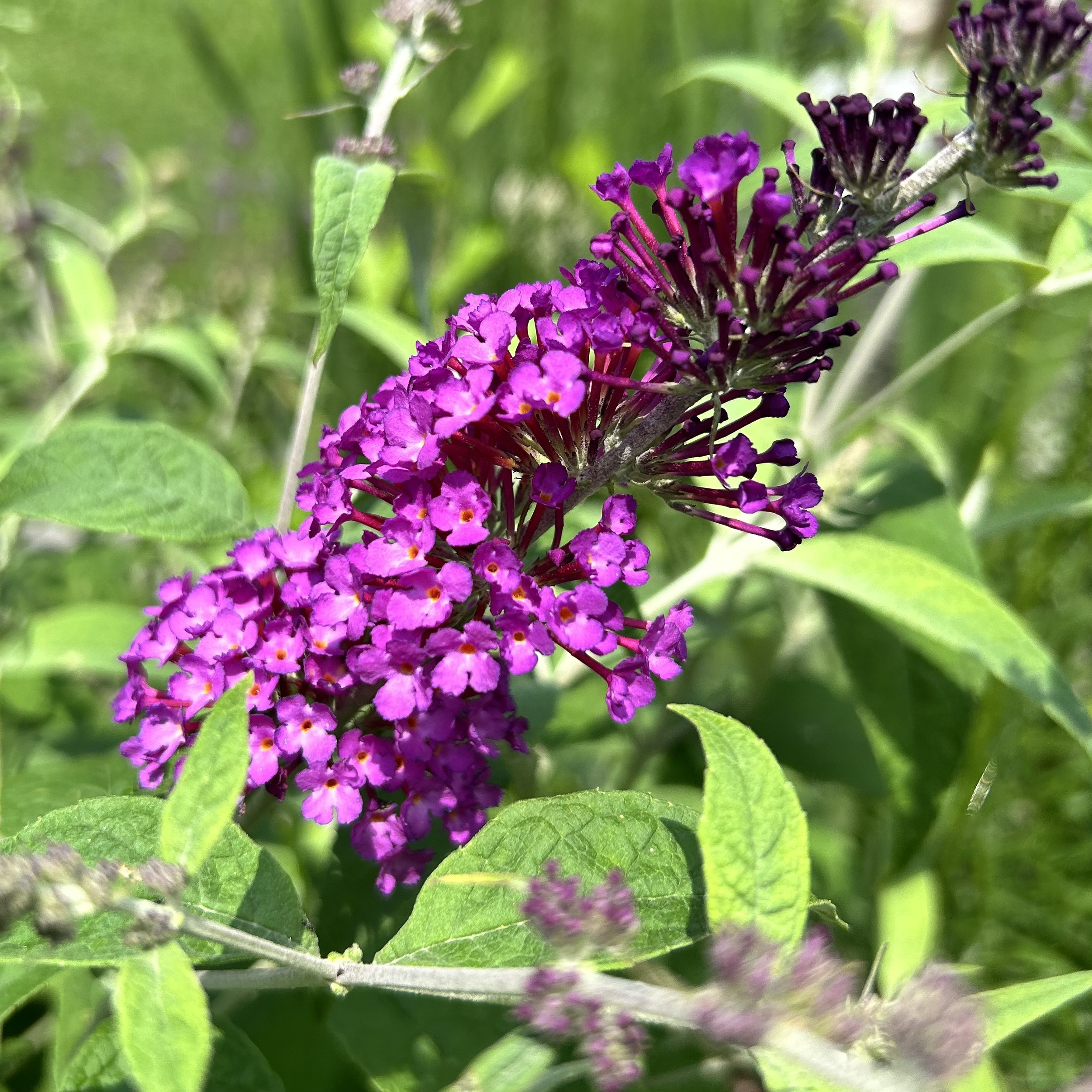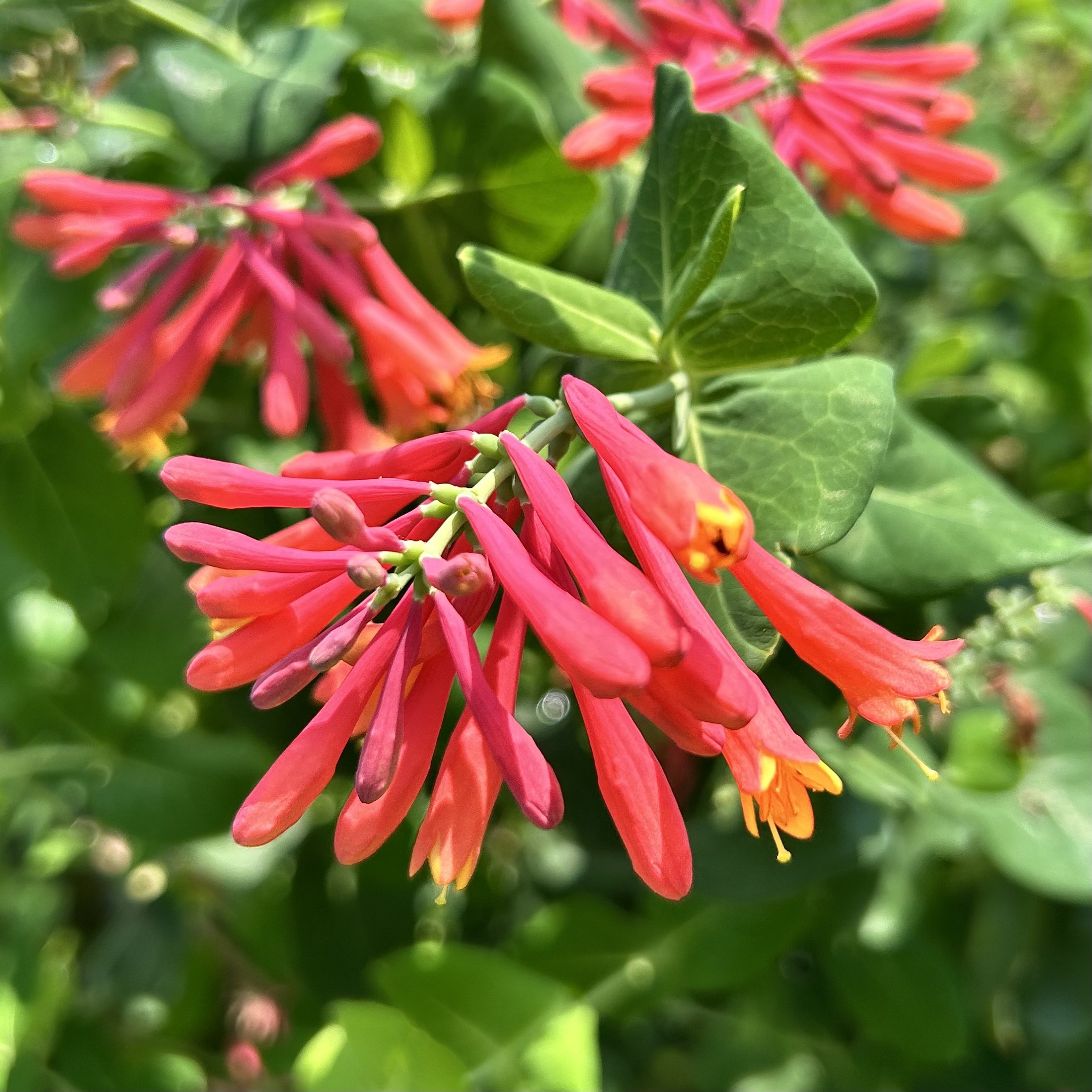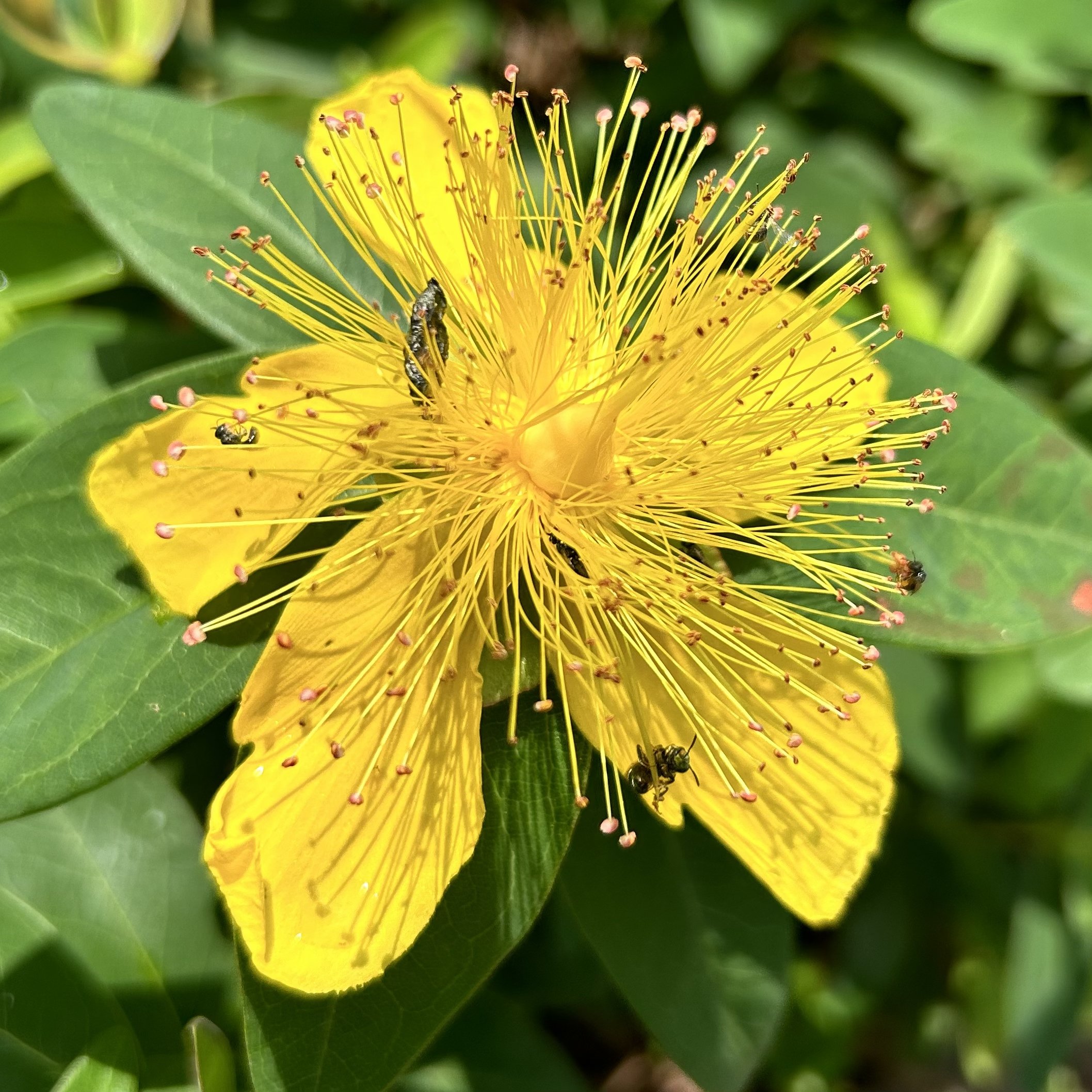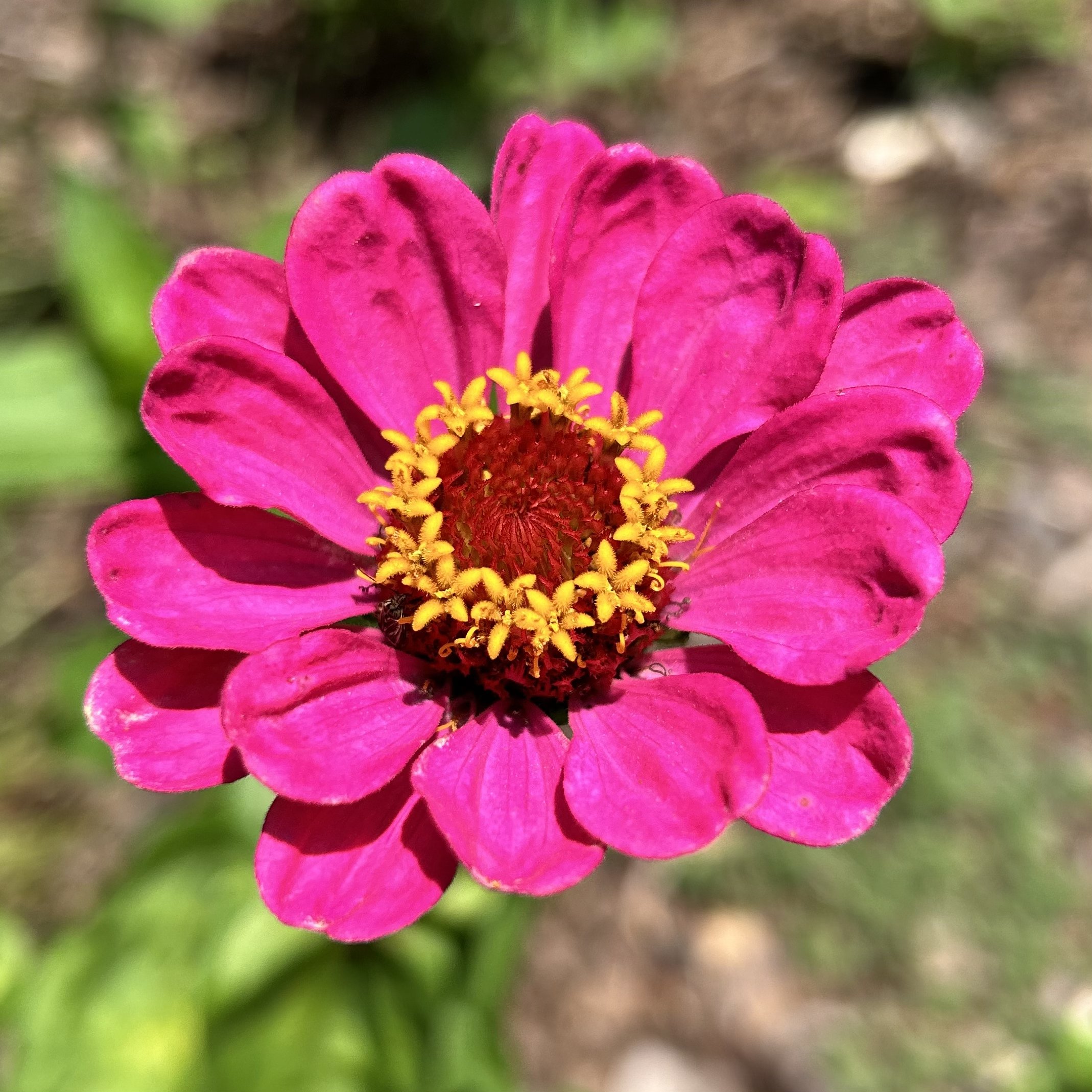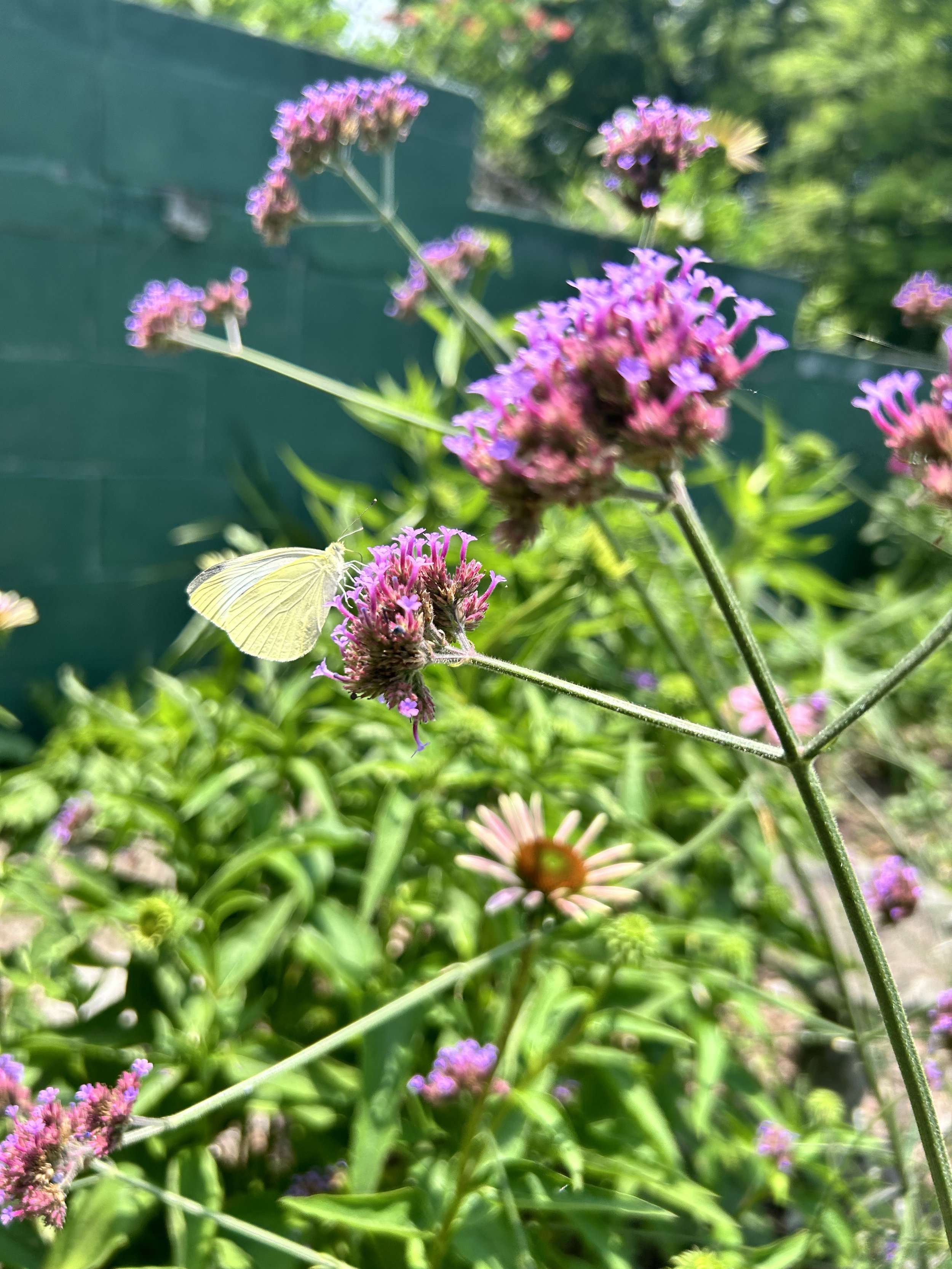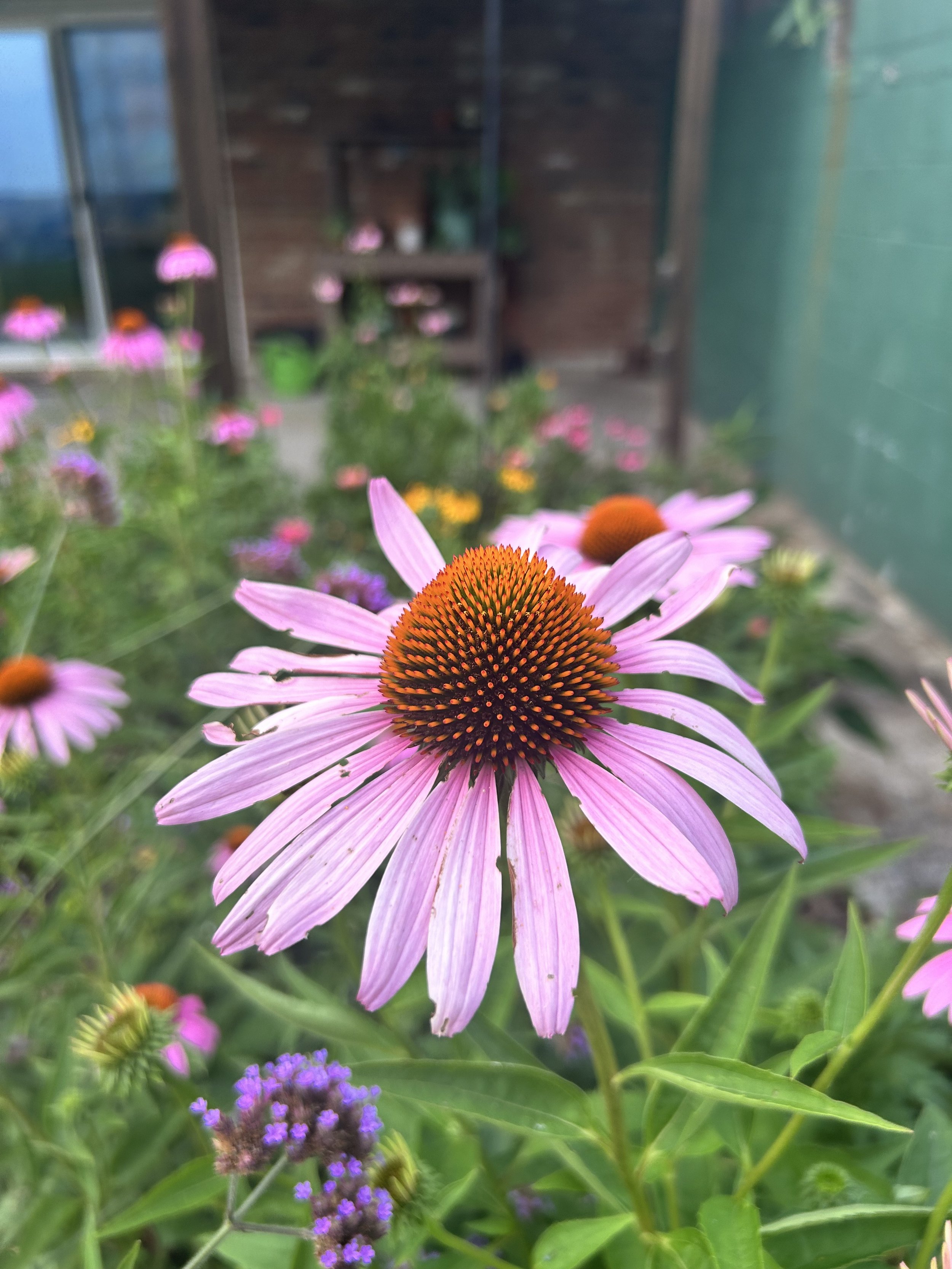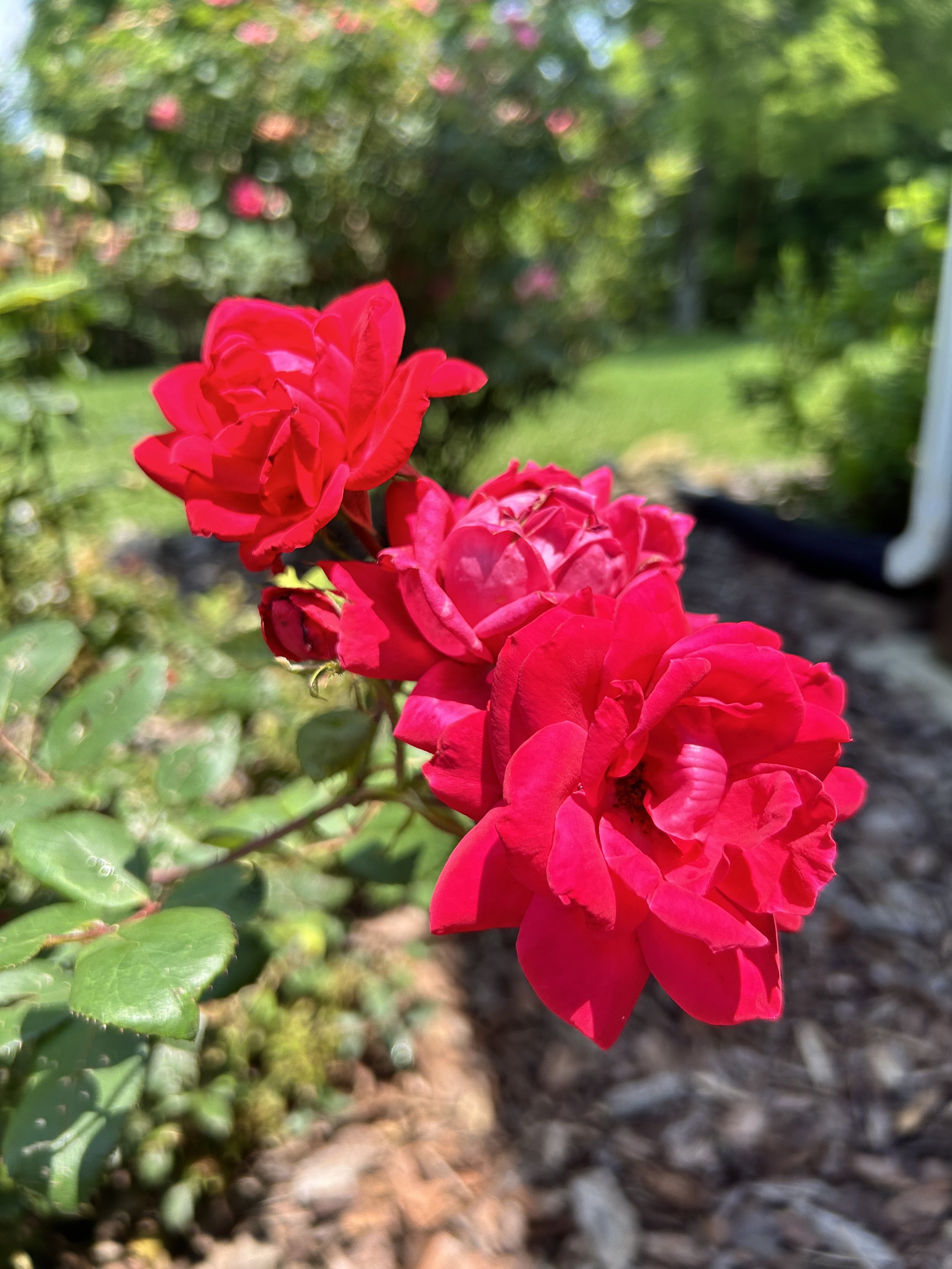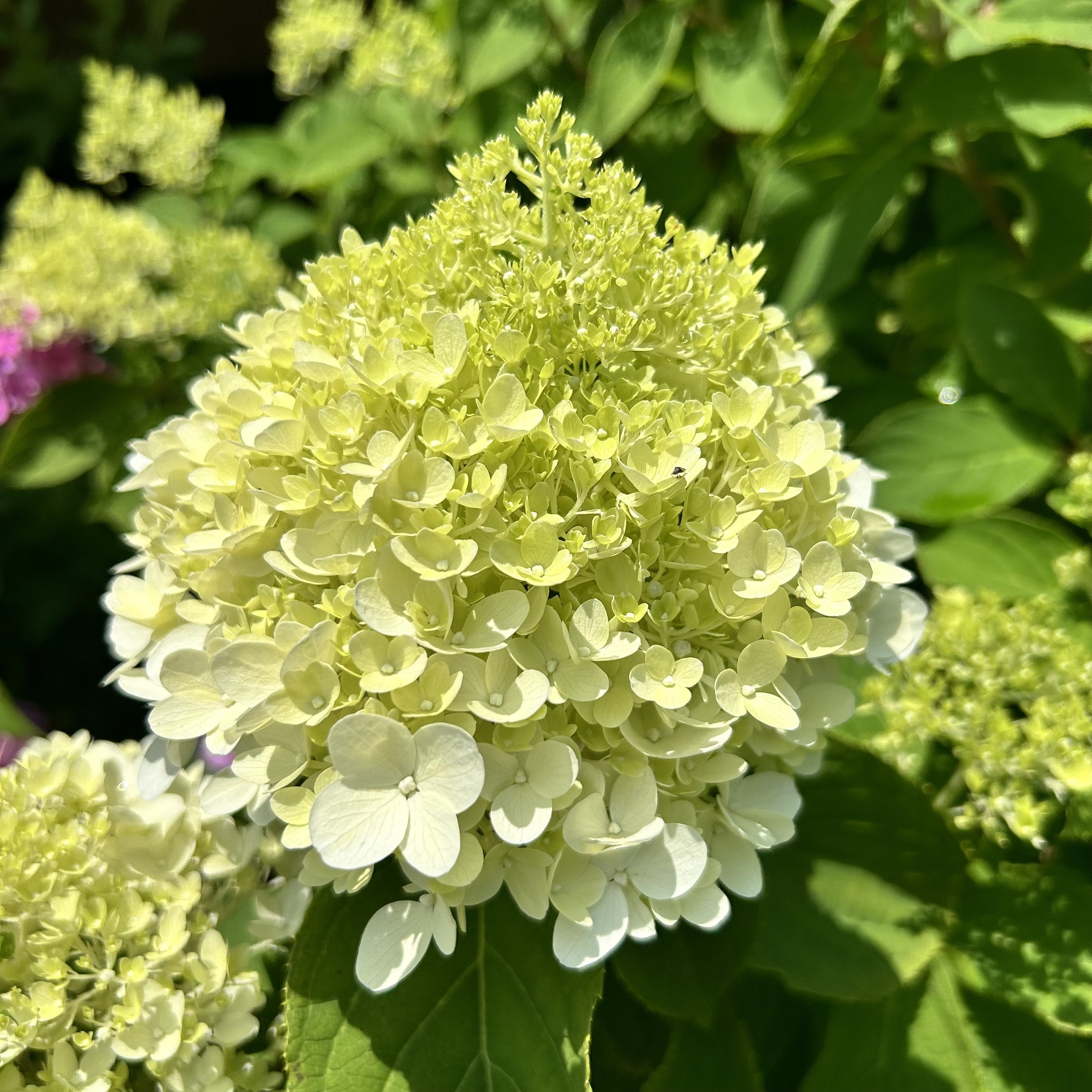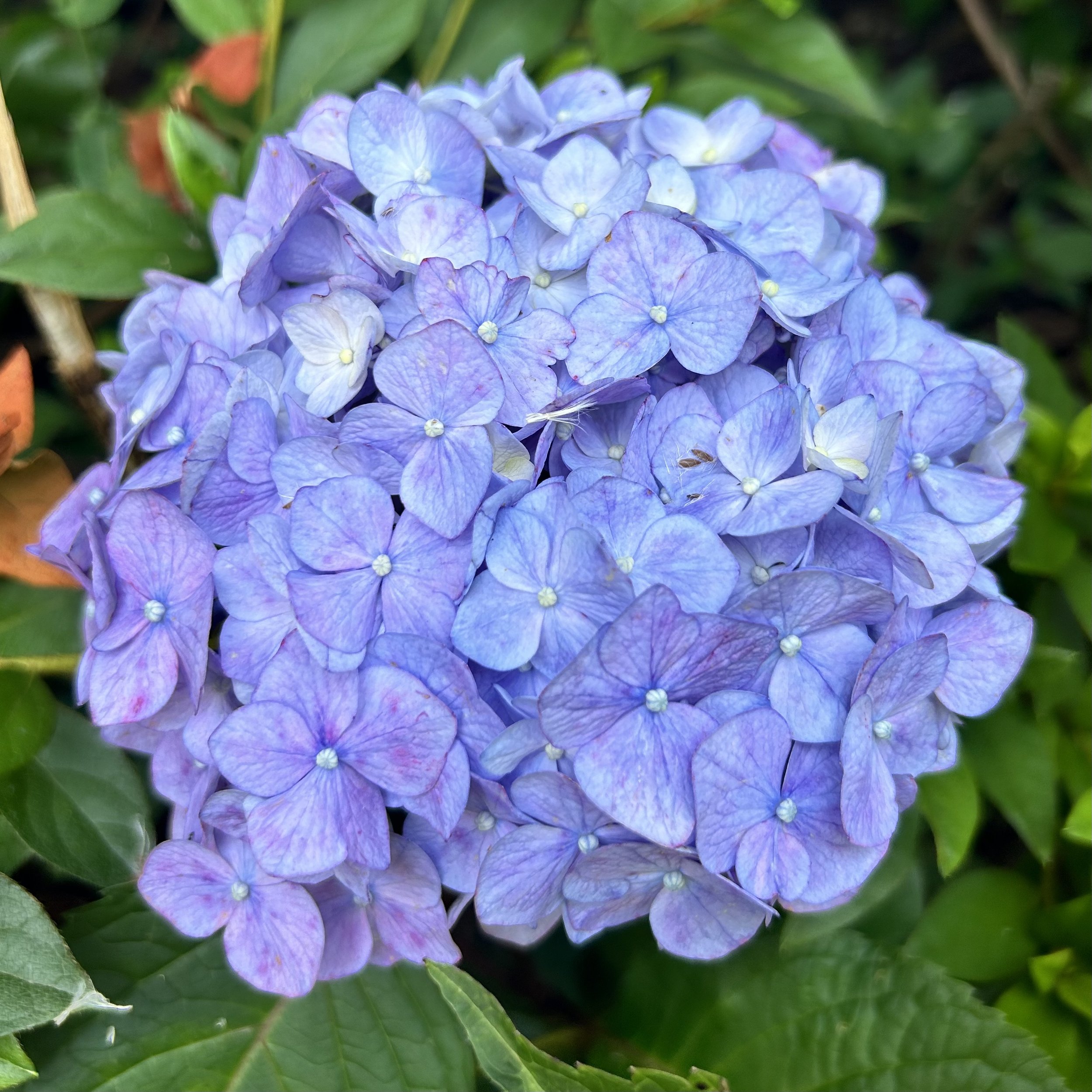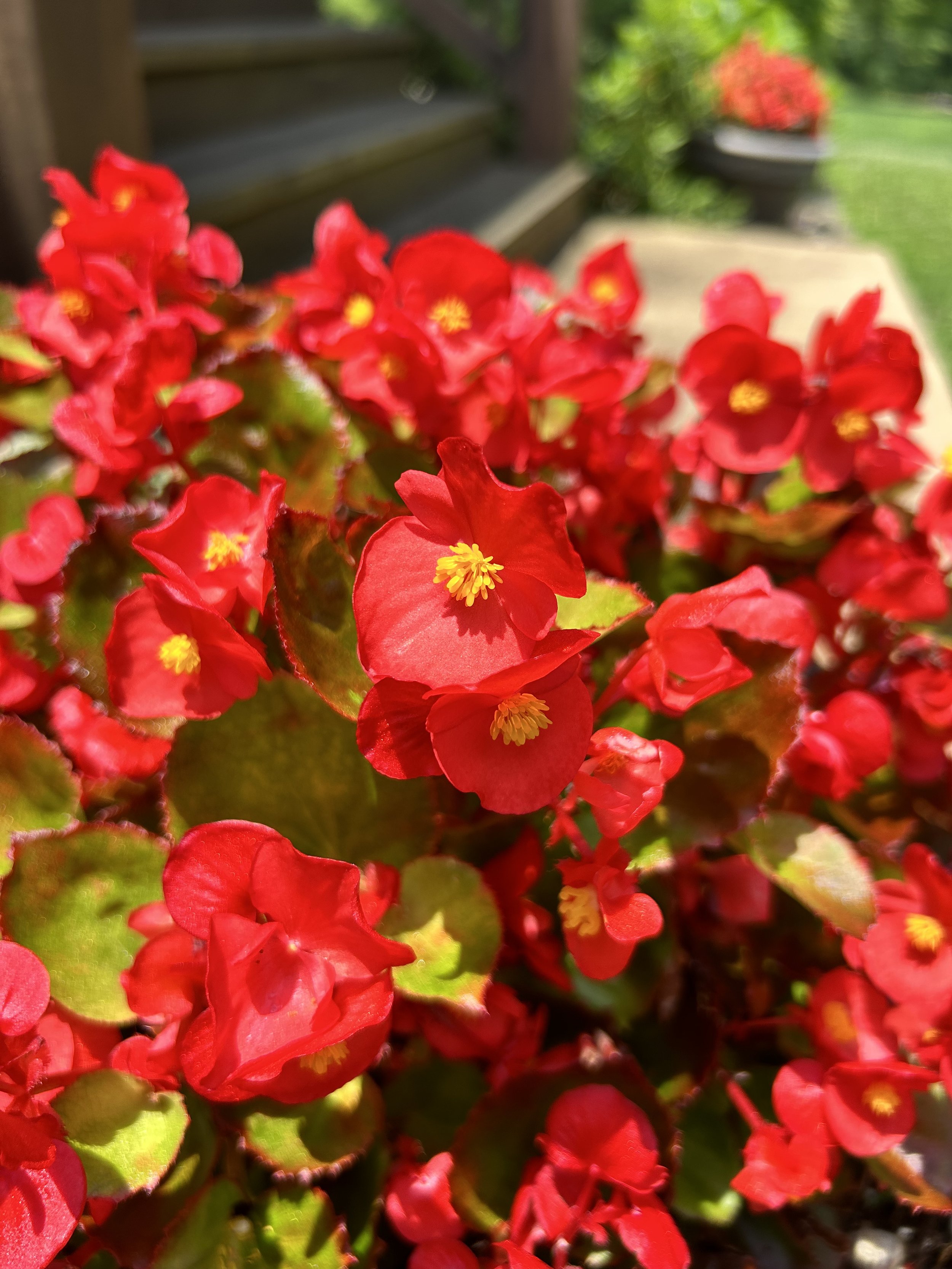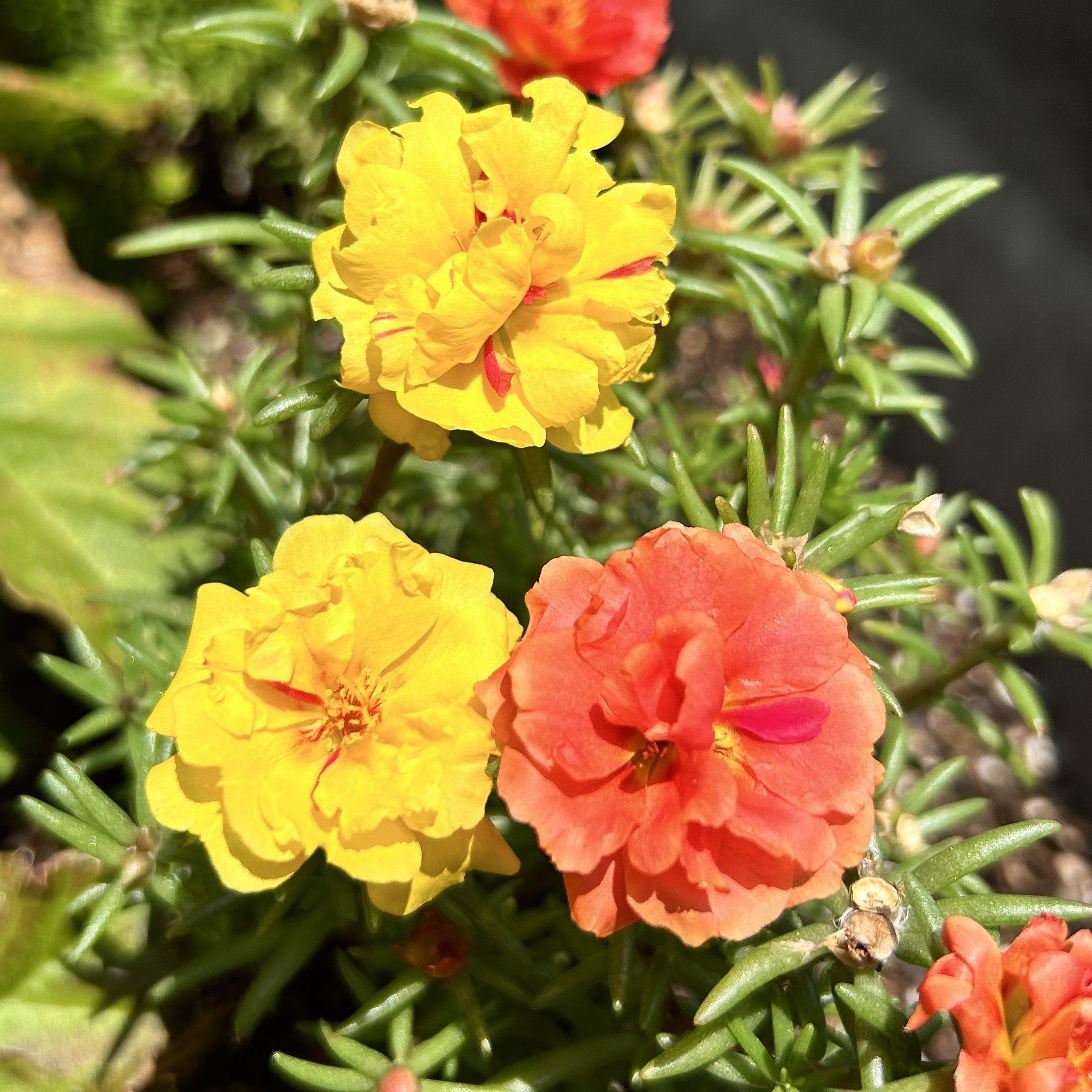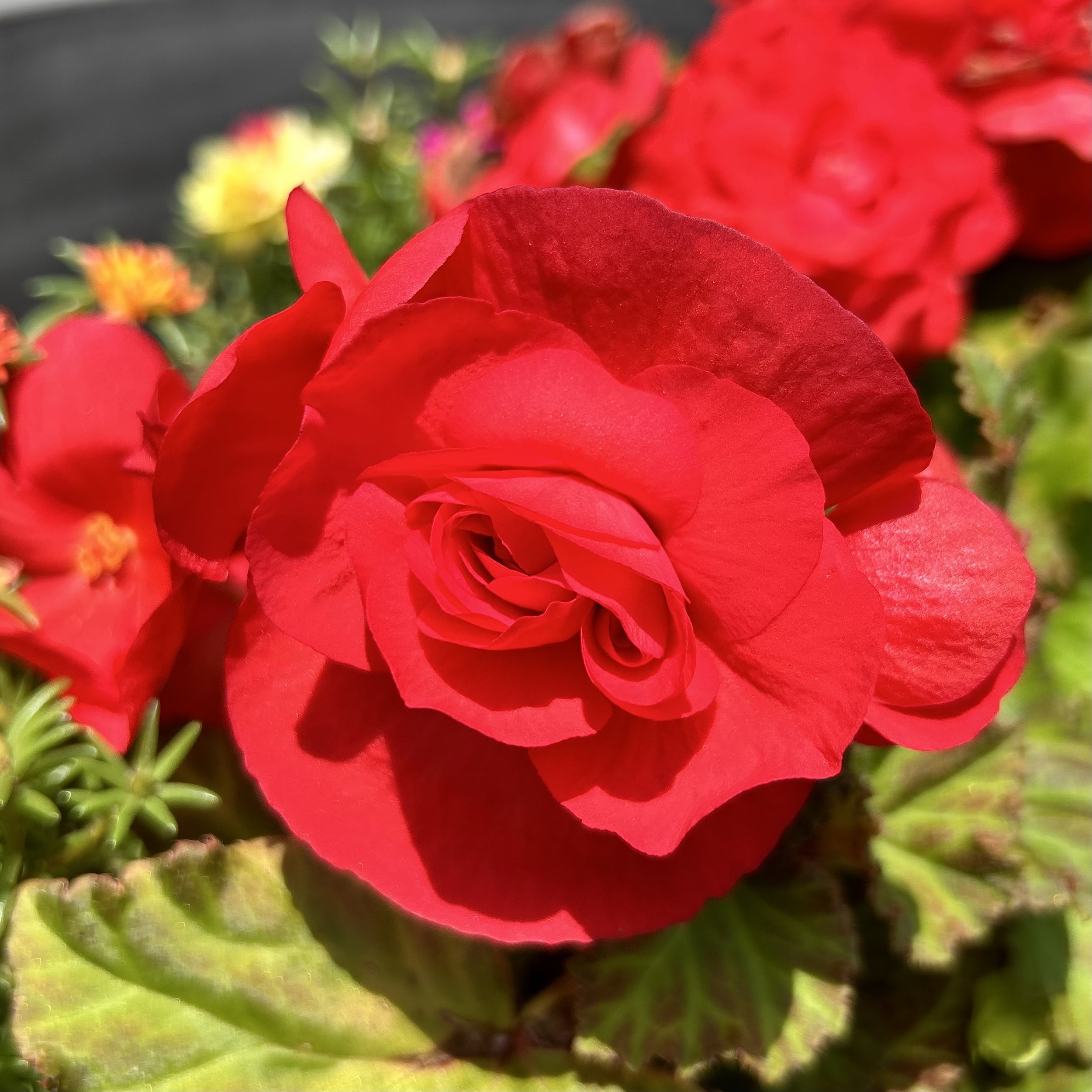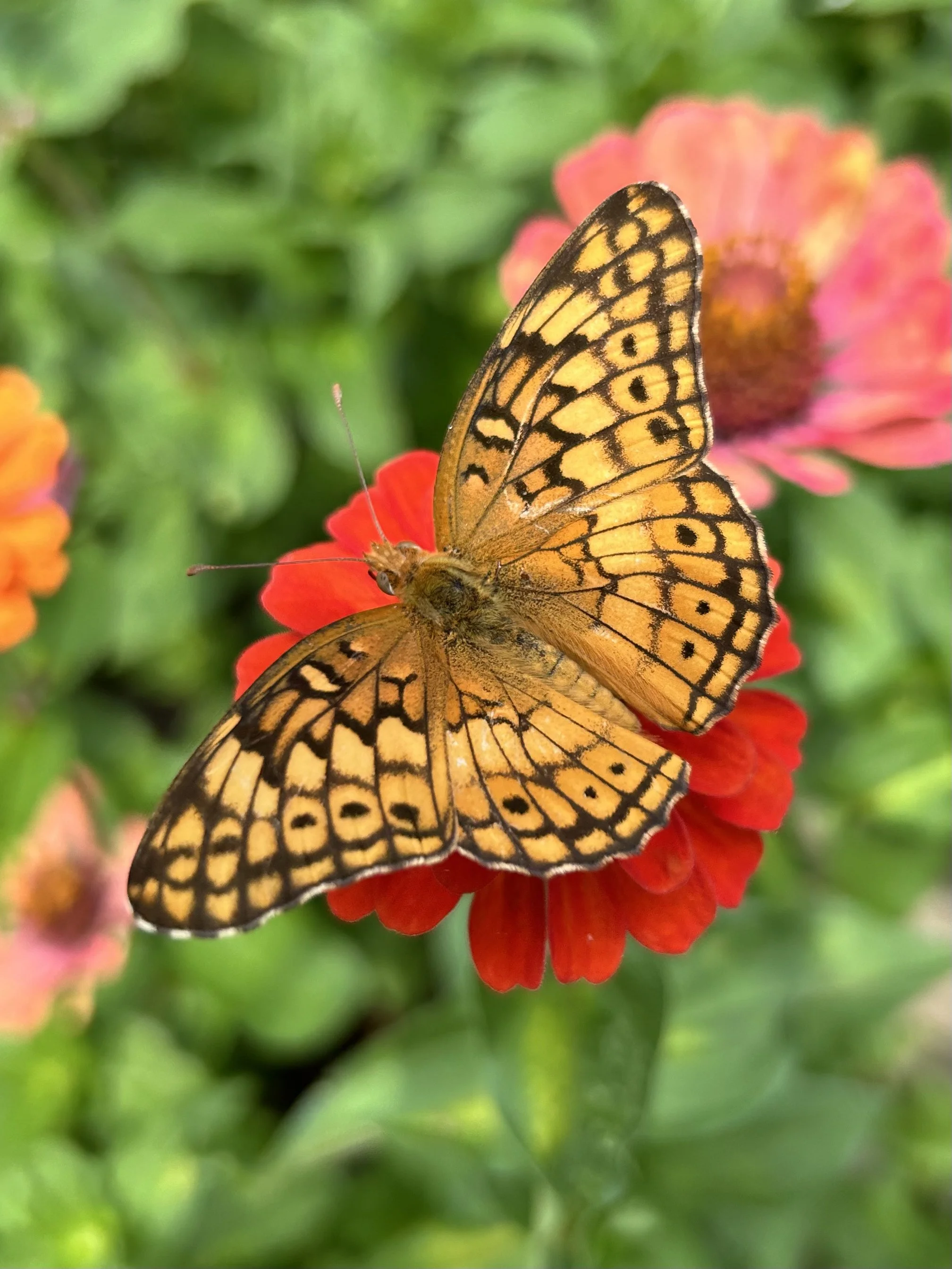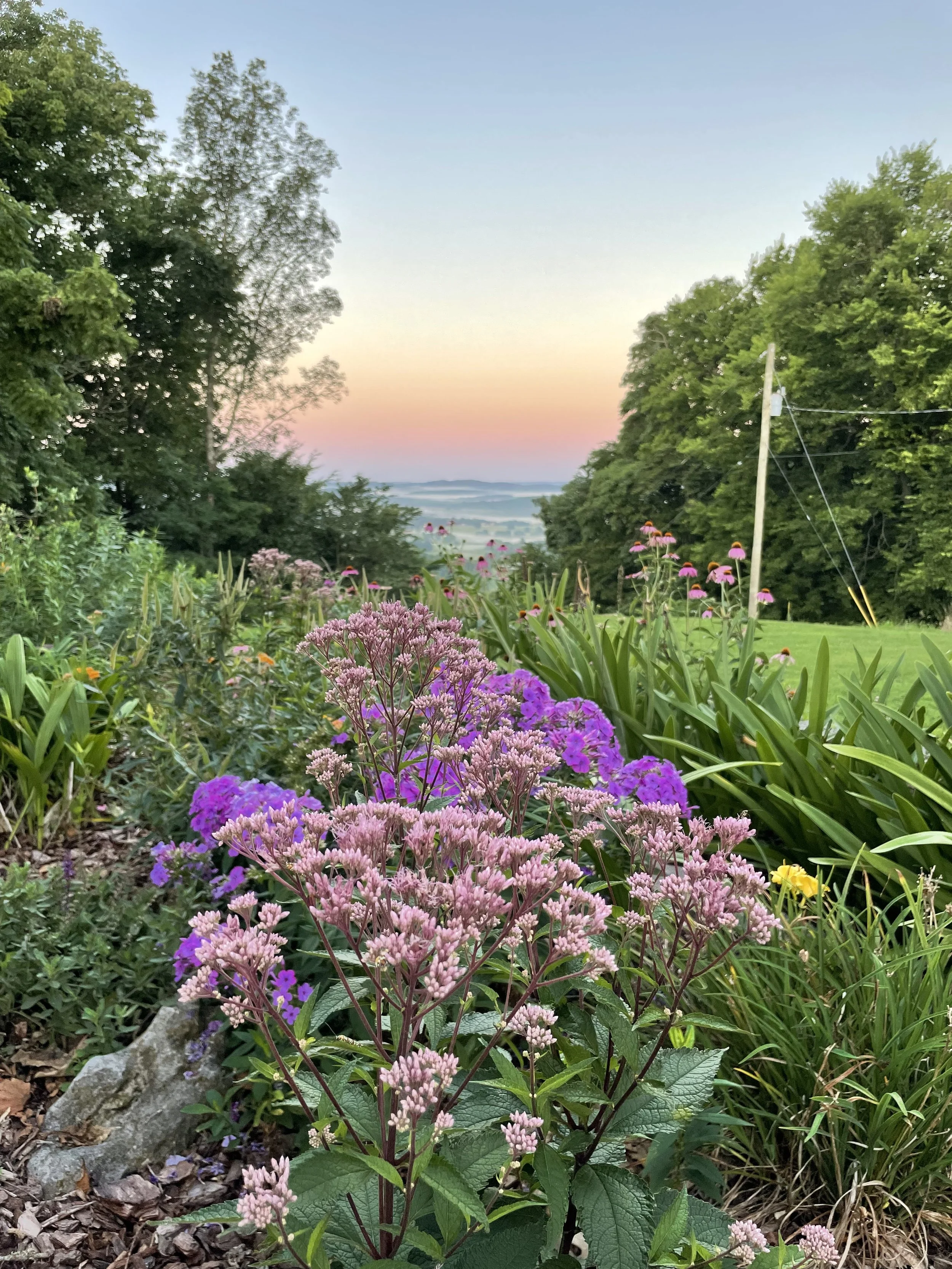June 2024 Butterfly Garden Tour
Here is a look at what’s blooming in my garden today.
View from the balcony: Rudbeckia, Echinacea, Liatris, and garden phlox
I love this garden phlox because the fuchsia clusters are so striking.
Garden phlox (Phlox paniculata)
The orange butterflyweed is also thriving. I bought three tiny seedlings from Mary’s Greenhouse several years ago, and they have grown to be the size of small bushes.
orange butterflyweed (Asclepias tuberosa)
Purple coneflower (Echinacea purpurea) and black-eyed susan (Rudbeckia hirta) are two of my favorite native perennials. As meadow wildflowers, they can withstand drought and rocky soil.
The bees love purple coneflower (Echinacea purpurea) and black-eyed susan (Rudbeckia hirta)
A lovely black-eyed susan (Rudbeckia hirta)
Dense blazing star (Liatris spicata) is another favorite. The tall, spiky flowers add vertical interest to the garden composition. I also love how the purple creates a split complimentary color scheme with the yellow and pink of the Rudbeckia and Echinacea.
Dense blazing star (Liatris spicata). Fun fact: spicata means “spiked” in Latin.
The Chinese butterfly orchids have thrived this year. Although they’re not endemic to Tennessee, I love how the parallel venation of the leaves add palm-like variety to the garden.
Chinese butterfly orchid (Bletilla ochrecea)
The beloved butterfly bush (Buddleja). I planted it 2017 when my dad and I created Swallowtail Garden.
Butterfly bush ((Buddleja)
The coral honeysuckle has done well, despite attacks from the deer. I had a few successful propagations last season and hope to grow more this year on the woodshed.
Coral honeysuckle (Lonicera sempervirens). The species name, sempervirens, means “always alive” and refers to the plant’s evergreen leaves.
The creeping St. John’s wort is on the aggressive side, but it does a nice job covering the unsightly downspout.
creeping St. John’s wort (Hypericum calycinum)
The zinnias are like butterfly magnets! I planted a bunch in the bottom section to fill in while the Echinacea gets established.
Zinnia
Lollipop verbena is another popular butterfly species. Its habit can look a little weedy, so I try to plant it against the wall or somewhere else otherwise unstructured.
Lollipop verbana (Verbena bonariensis) and a cabbage white butterfly
The ground section is comprised of Echinacea, Rudbeckia, zinnias, and garden phlox. There are gladiolas, too, but I used them in an arrangement before I took this picture.
Purple coneflower (Echinacea purpurea)
Flowers are blooming in front of the house, too.
Knock out rose (Rosa 'Knock Out')
The azaleas aren’t in bloom, but the hydrangeas are!
Panicled hydrangea (Hydrangea paniculata)
We also have blue and pink ones.
Bigleaf hydrangea (Hydrangea macrophylla)
I love these red begonias, too!
Begonias below the front porch
The side planters contain purslane. Their succulent leaves do well in the Tennessee summer heat.
Purslane (Portulaca)
We tried growing tuberous begonias for the first time this year. I think their blooms look just like roses.
Tuberous begonia
And that’s the tour! Next month I’m expecting more butterflies. Swallowtails usually show up in force in July and stay until frost. I can’t wait!


